Moving to Ontario from another country means navigating Canada’s immigration process, which can be complicated and time-consuming. Whether you’re applying for a student or work visa, citizenship, or refugee protection, the steps involved can feel overwhelming.
That’s why working with an immigration lawyer in Ontario is highly recommended!
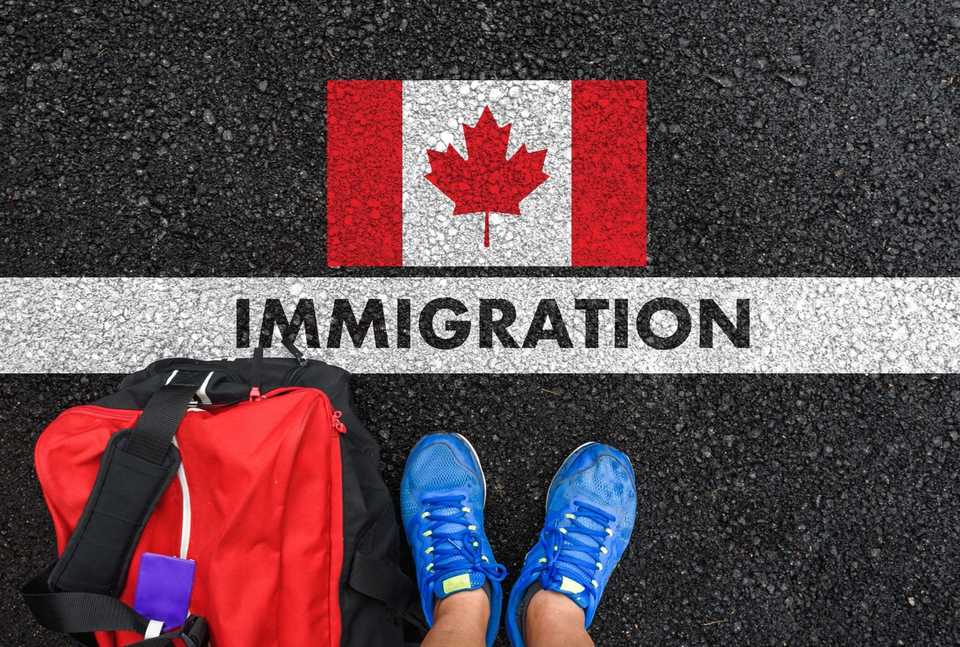
An immigration lawyer can guide you through the legal requirements, help you avoid mistakes, and increase your chances of success.
| In this article, JuriGo explains the services offered by immigration lawyers and how to find the best one near you in Ontario! |
|---|
What Is an Immigration Lawyer and What Services Do They Offer in Ontario?
An immigration lawyer is there to help individuals and families navigate the often confusing and complex world of Canada’s immigration laws.
These laws can be tricky, which is why having an experienced lawyer can make all the difference. A skilled immigration lawyer provides a wide range of services designed to meet the specific needs of their clients.
Not all immigration lawyers offer the same services, but here are some of the most common ones you can expect from lawyers in Ontario:
Assistance with Visa and Work Permit Applications
Navigating Canada’s immigration system can be challenging, especially when applying for visas and work permits. Immigration lawyers in Ontario provide essential guidance to individuals, students, and workers, ensuring compliance with Canadian immigration laws. Indeed, they offer help for the following visas:
Temporary Resident Visas (Visitor Visas)
A Temporary Resident Visa (TRV), commonly known as a visitor visa, is a document that allows foreign nationals to enter Canada for a temporary stay. This visa is required for tourism, business trips, or family visits. It is typically placed in the passport and serves as proof that the applicant meets all the necessary requirements to enter Canada as a temporary resident.
Who Needs a Visitor Visa?
Not all travellers need a visitor visa to enter Canada. U.S. citizens only need a valid passport, while citizens of 55 countries, including Germany, France, Australia and Japan, are eligible for an Electronic Travel Authorization (eTA). However, individuals from over 100 countries, such as India, China, and Nigeria, must apply for a visitor visa before they can enter Canada.
Required Documents for a Visitor Visa
The application process for a visitor visa requires specific documentation, including:
- A valid passport
- Proof of financial stability to support the stay
- An invitation letter (if applicable)
- Biometrics
Applicants may also be asked for additional documents or information. Processing times can vary, so it’s important to apply early to avoid delays.
The Role of an Immigration Lawyer in Visitor Visas :
Navigating the visitor visa application process can be challenging, and an immigration lawyer in Ontario can ensure that the application is successful.
Lawyers assist in preparing all required documents, such as proof of funds and invitation letters, and help applicants demonstrate their intent to return to their home country.
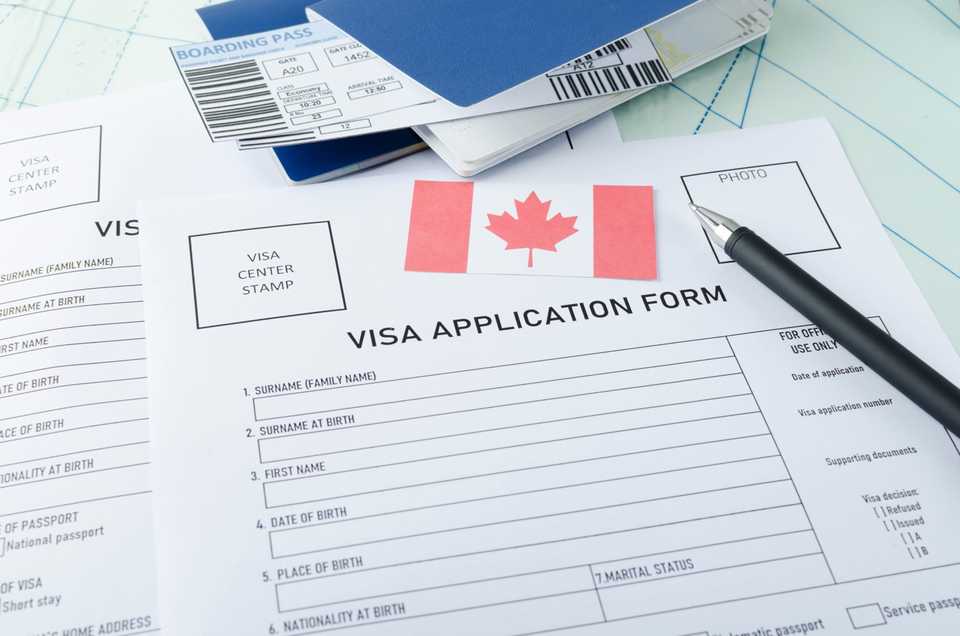
Additionally, an immigration lawyer can provide valuable guidance if an application is rejected or delayed. They can also assist with visa extensions, ensuring that their clients stay in compliance with Canadian immigration laws. Their expertise ensures a smooth and efficient application process, maximizing the chances of approval.
Student Visa
A student visa, the Canadian Study Permit, allows international students to come to Canada for educational purposes. It is required for foreign nationals who plan to study in Canada for more than six months. To apply for this permit, students must:
- Be accepted by a Designated Learning Institution (DLI) in Canada.
- Prove they have sufficient financial resources to cover tuition and living expenses.
- Demonstrate that they intend to leave Canada after completing their studies.
The Role of an Immigration Lawyer in Student Visas :
The process of applying for a study permit can be tricky, but an immigration lawyer can make a world of difference. With their expertise, they help students navigate the complex requirements, ensuring that every detail is in order and the application meets the necessary legal standards.
From gathering key documents like proof of funds, medical records, and police certificates, an immigration lawyer makes sure nothing is overlooked.
An immigration lawyer also helps students handle any challenges, such as potential rejections or delays. By ensuring everything is submitted correctly and on time, they can speed up the process and increase the chances of approval. With their support, the path to studying in Canada becomes a lot less overwhelming and far more manageable.
Work Visa
A work permit is an official document issued by the Canadian government that allows a foreign national to work in Canada. There are different types of work permits, such as employer-specific work permits, open work permits, and post-graduation work permits, each with specific eligibility criteria.
Generally, applicants need a valid job offer from a Canadian employer, proof of qualifications, and in some cases, a Labour Market Impact Assessment (LMIA) that shows hiring a foreign worker won't negatively impact the Canadian job market.
The Role of an Immigration Lawyer in Work Visas :
A lawyer guides applicants through the complex application procedures, ensuring all documentation is in order. They anticipate potential issues that might arise with the application, ensuring that all the supporting documents meet the requirements set by Immigration, Refugees and Citizenship Canada(IRCC).
An immigration lawyer can help address any legal challenges that may emerge during the process and represent the applicant in the event of a refusal, appealing or reapplying if necessary. Their expertise increases the chances of a successful application by providing advice on improving the application and avoiding common mistakes that could lead to delays or denials.
Assistance with Spousal Sponsorship
Spousal sponsorship is a pathway for Canadian citizens or permanent residents to bring their foreign spouse, common-law partner, or conjugal partner to live in Canada as a permanent resident.
To be eligible to sponsor a partner, the sponsor must:
- Be at least 18 years old.
- Meet the financial requirements.
- Prove they can support their partner without relying on social assistance, except for reasons of disability.
- Be residing in Canada and plan to remain in the country when their partner becomes a permanent resident.

The applicant (spouse or partner) must:
- Be at least 18 years old.
- Have a genuine relationship, not one entered into solely for the purpose of acquiring immigration status.
- If applying from within Canada, they must already be living with the sponsor.
The Role of an Immigration Lawyer in Spousal Sponsorship:
The spousal sponsorship process can be tricky, with a lot of paperwork and proof needed to demonstrate the authenticity of the relationship. Immigration lawyers in Ontario are key to making this process smoother.
They ensure that all necessary forms are completed accurately and that supporting documents, such as proof of the authenticity of the relationship, are provided. They also assist with:
- Preparing clients for interviews.
- Drafting letters.
- Addressing any concerns that may arise during the application process.
However, an immigration lawyer handles all correspondence with IRCC, ensuring clients don't miss any important communications and providing peace of mind throughout the entire process.
Assistance with Citizenship Applications
Obtaining Canadian citizenship is a significant achievement, but the process can be challenging. There are three primary ways to acquire Canadian citizenship:
- Citizenship by Birth: Individuals born on Canadian soil are eligible for Canadian citizenship.
- Inherited Citizenship: Children born outside of Canada to Canadian citizens are entitled to Canadian citizenship by descent.
- Naturalization: Permanent residents who meet specific eligibility criteria can apply for citizenship through the naturalization process.
Whether pursuing citizenship through birth, inheritance, or naturalization, the guidance of an immigration lawyer can simplify the process and enhance the chances of a successful outcome.
Below, is the role an immigration lawyer can play in helping you navigate the path to Canadian citizenship :
| Step | Role of Immigration Lawyer |
|---|---|
| Understanding Eligibility Criteria | Before embarking on the application process, it is important to determine if one meets the eligibility requirements established by IRCC. An immigration lawyer can evaluate an individual’s circumstances and determine their eligibility, considering factors such as residency obligations, language proficiency, and any special conditions.Their guidance ensures that applicants understand the criteria and are well prepared to meet them. |
| Preparing and Organizing Documentation | The documentation needed for a citizenship application can be extensive and detailed. From proof of identity to language proficiency results, it’s important to have everything in order. An immigration lawyer can assist in gathering, organizing, and reviewing these documents to ensure they meet the IRCC's standards. This helps avoid delays or complications in the process, ensuring that all required paperwork is submitted correctly. |
| Responding to IRCC Requests | During the application process, IRCC may request additional information or clarification. These requests can be confusing, and responding appropriately is critical. An immigration lawyer can help prepare clear and compelling responses to IRCC's inquiries, increasing the likelihood of a successful outcome. |
| Handling Rejected Applications | In cases where a citizenship application is rejected, an immigration lawyer can provide essential support in appealing the decision. They analyze the reasons for rejection and advise on the best course of action, which may include filing an appeal, requesting reconsideration, or representing the individual in hearings. |

The citizenship application process can feel overwhelming, but an immigration lawyer can make a big difference. With their expertise, applicants can navigate the process with confidence. A lawyer ensures that every step is handled properly, meets deadlines, and complies with legal requirements, helping to reduce stress and increase the chances of success.
Assistance With Obtaining Refugee Status
For those seeking safety, the process of obtaining refugee status can be complex. To qualify for refugee status in Canada, individuals must prove a well-founded fear of persecution or a risk of harm in their home country.
The reasons for persecution could be based on race, religion, political beliefs, nationality, or membership in a particular social group. Canada recognizes two main categories for refugees:
- Convention Refugees: These individuals have a legitimate fear of persecution based on one or more of the grounds mentioned above. To qualify, they must show they cannot be safely returned to their home country, and their government is either unwilling or unable to protect them.
- Persons in Need of Protection: These are individuals already in Canada who face significant risks of torture, threats to life due to armed conflict, or cruel and unusual punishment if returned to their home country. They must demonstrate that these risks are specific to them and not to the population at large.
How to File a Refugee Claim in Canada?
There are several ways to submit a refugee claim in Canada. Individuals can file their claims either at a Port of Entry (POE), such as an airport or border crossing, or from within Canada. Most claims are made online via a dedicated portal, where applicants must submit a Basis of Claim (BOC) form. This form provides a detailed account of the reasons for seeking refuge in Canada.
Once submitted, the IRCC or the Canada Border Services Agency (CBSA) will assess whether the claim meets the eligibility criteria. If eligible, the claim is referred to the Refugee Protection Division (RPD) for an admissibility hearing.
The Role of an Immigration Lawyer in the Refugee Process:
Immigration lawyers in Ontario help applicants through the refugee claim process. They assist with the preparation of the BOC form, ensuring all relevant information is included and supported by evidence. Lawyers also represent their clients at hearings, advocating on their behalf and presenting their case in the most compelling way possible.
In addition, immigration lawyers offer invaluable guidance in navigating challenges that might arise, such as prior refusals or issues of inadmissibility. They provide legal advice tailored to each client’s situation, increasing the chances of a successful refugee claim.
If a claim is rejected, an immigration lawyer can also help with the appeals process, ensuring the best possible outcome for those seeking protection in Canada!
Assistance with Pre-Removal Risk Assessment
Canada takes its commitment to human rights seriously, especially when it comes to deporting individuals who may face danger or persecution in their home country.
The Pre-Removal Risk Assessment (PRRA) is a process that allows foreign nationals facing deportation to apply for protection if they are at risk of harm, such as torture or persecution, if returned to their country.
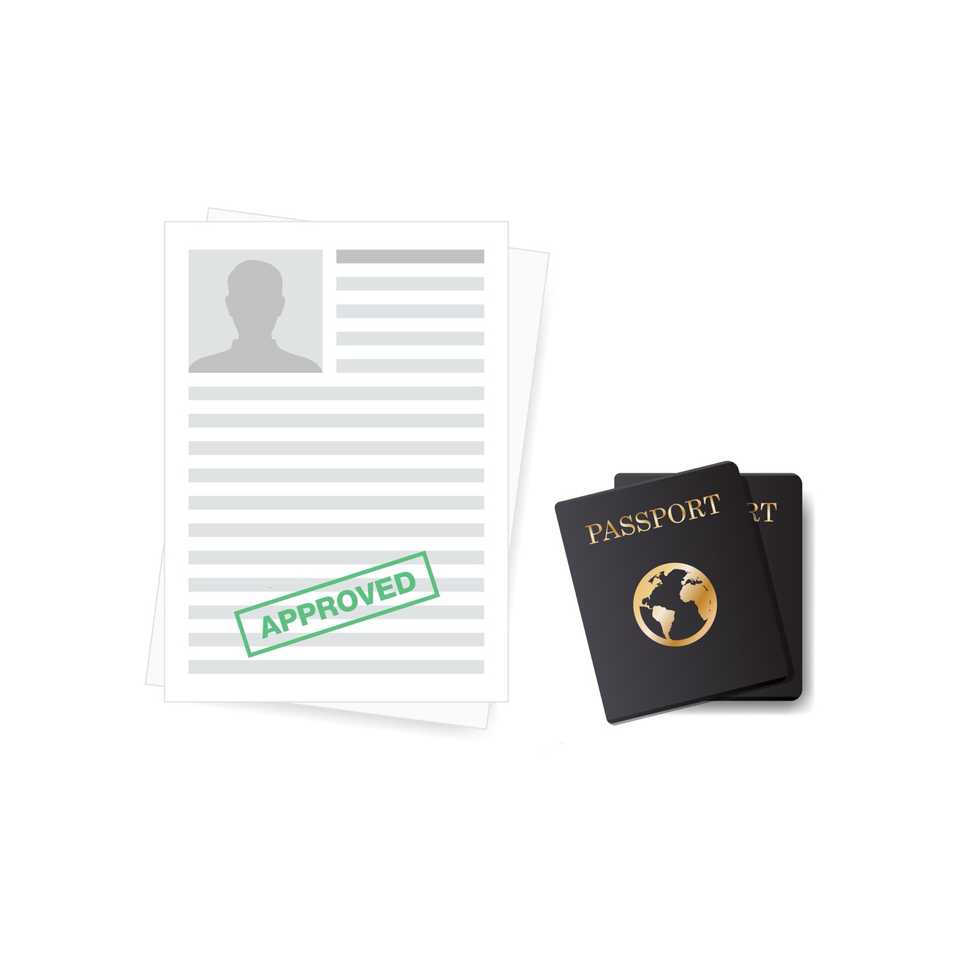
This process helps ensure that Canada does not send individuals back to a country where they may face grave risks, including persecution, danger to their lives, or cruel treatment.
Eligibility Criteria for PRRA
Not everyone facing removal from Canada can apply for a PRRA. Some of the key eligibility restrictions include:
- Previous PRRA or Refugee Claims: If an individual has previously submitted a PRRA or refugee claim that was rejected, they may not be eligible to apply again for a certain period.
- Safe Countries: Individuals from countries that Canada has designated as safe may be ineligible to apply for a PRRA.
- Extradition Cases: Those who are subject to extradition are not eligible for the PRRA process.
- Active Refugee Protection: If an individual currently has active refugee protection in Canada, they cannot apply for a PRRA.
Key Considerations for PRRA Evaluation
When reviewing a PRRA application, Canadian authorities consider several factors:
- Persecution Risks: Whether the individual would face persecution on account of race, religion, nationality, or political opinion as defined by the Geneva Convention.
- Danger to Life or Torture: If the individual is at risk of being subjected to cruel treatment, unusual punishment, or torture.
- General Safety Concerns: Whether the home country presents an overall danger to the applicant's safety or well-being.
If a PRRA application is successful, the applicant becomes a protected person, eligible to apply for permanent residency in Canada. However, if the application is denied, the individual must leave Canada. If they believe the decision was flawed, they may appeal to the Federal Court for a judicial review.
The Role of an Immigration Lawyer in Pre-Removal Risk Assessment:
An immigration lawyer plays a crucial role in helping ensure that a PRRA application is well prepared. They guide the individual through the process, assisting in gathering the necessary documentation, crafting strong written submissions, and clearly demonstrating the risks involved.
Beyond preparing the application, the lawyer also represents the individual throughout the PRRA process. They handle all communication with authorities, ensuring that every step is taken care of and that the case is properly heard.
Their main goal is to meet all legal requirements and increase the likelihood of a positive outcome. If the decision is not favourable, an immigration lawyer can appeal the decision before the Federal Court!
How to Find the Best Immigration Lawyer in Ontario for Your Needs**?**
When navigating the complexities of immigration law, finding the right lawyer matters. Immigration issues can be stressful, and the legal process may seem overwhelming. To ensure you receive the best advice and representation, it’s important to carefully choose an immigration lawyer who can meet your specific needs.
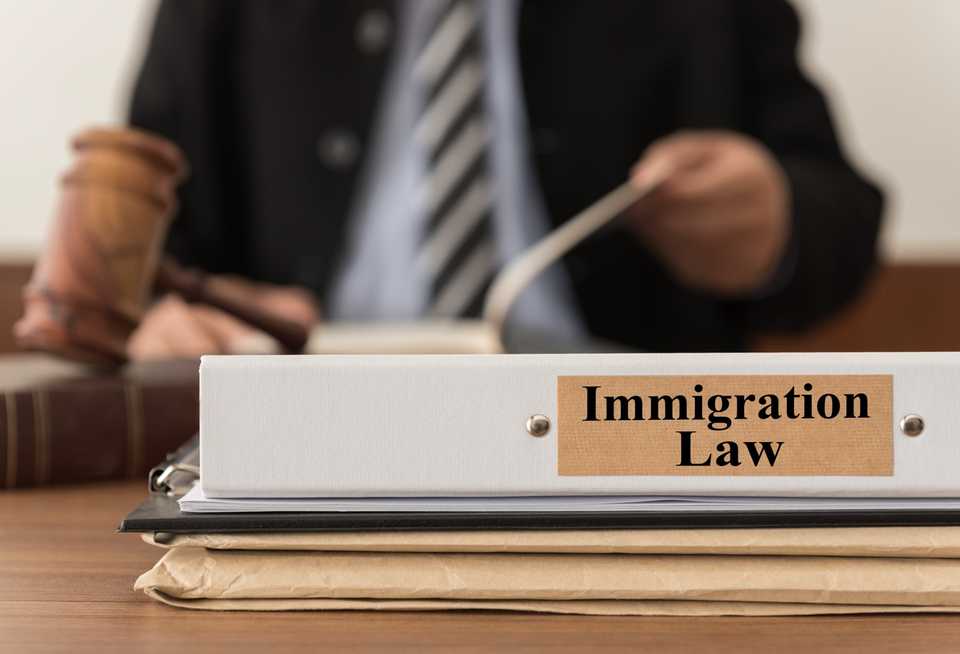
Here’s how to find the best immigration lawyer in Ontario:
| Step | Explanation |
|---|---|
| 1. Determine Your Legal Needs | Immigration law is broad and covers a wide range of issues, from refugee claims to family sponsorships, work permits, and permanent residency applications. Not every immigration lawyer in Ontario handles the same type of case. It’s important to first assess your specific legal needs. |
| 2. Research Online | Start your search by using online resources. Websites such as the Law Society of Ontario provide directories of licensed lawyers, making it easier to search for those specializing in immigration law.These directories can filter results based on location, practice areas, and even languages spoken. A simple online search can also help you identify top immigration lawyers in your area. |
| 3. Read Reviews and Testimonials | One of the best ways to gauge an immigration lawyer’s reputation is by reading reviews and testimonials from past clients. Many lawyers and law firms publish these on their websites, but you can also check third-party review platforms like Google. Look for feedback on the lawyer’s communication style, their success rate with similar cases, and how they handled complex situations. |
| 4. Consultations | Many immigration lawyers offer initial consultations, which are often free or available at a low cost. This gives you a chance to meet the lawyer, talk about your case, and see if they’re the right fit for you. During the meeting, you should ask about their experience with cases like yours, how they approach solving problems, and their knowledge of current immigration laws. It’s also a good idea to ask about their fees and how they charge for their services. |
| 5. Assess Accessibility and Communication | Your relationship with your immigration lawyer is important. Make sure they are easy to communicate with and accessible when you need them. The process of immigration can involve multiple steps, often requiring timely responses. A lawyer who communicates clearly and is available to address your concerns can make a huge difference. Check if they respond to emails and phone calls promptly and if they take the time to explain complex legal processes in a way that you can understand. |
In short, finding the best immigration lawyer in Ontario requires research, diligence, and a clear understanding of your legal needs. By using online resources, reading reviews, scheduling consultations, and considering their communication skills and expertise, you can identify the right lawyer who will offer the best support for your immigration journey.
JuriGo Helps You Find an Immigration Lawyer Near You!
JuriGo is here to simplify your search for an immigration lawyer in Ontario. Whether you're in a big city or a smaller town, JuriGo makes it easy to find a lawyer tailored to your needs.
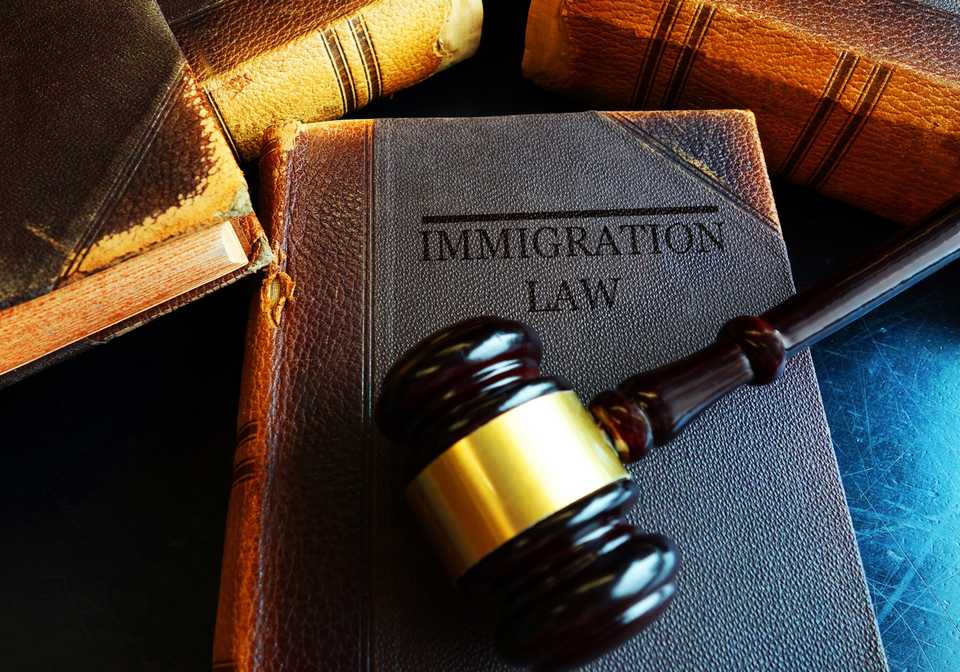
With JuriGo, the process is quick, straightforward, and free. Simply complete the request form and share details about your immigration situation.
Once we receive your information, we will immediately connect you with the right immigration lawyer nearby. There is no commitment required, just the support you need when you need it.